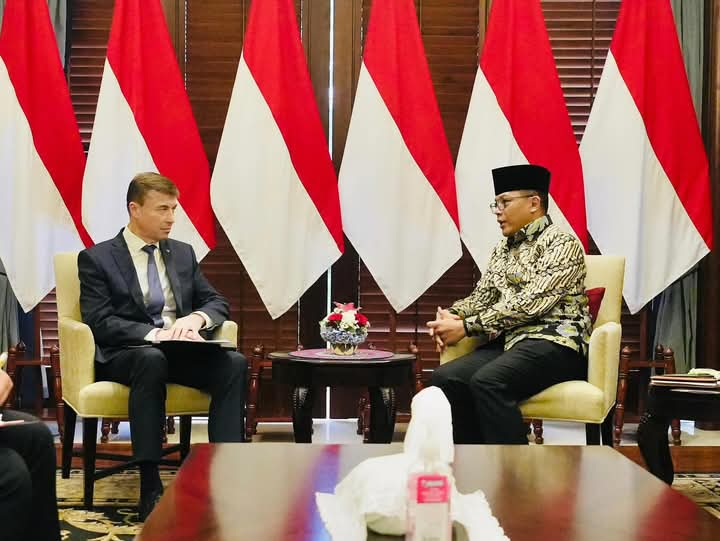Indonesia and Russia Eye Strategic Partnerships in Technology, Education, and Energy
JAKARTA, RAKYAT NEWS – Indonesia and Russia are exploring a wide range of investment opportunities across several sectors, including education, technology, healthcare, and tourism. The initiative was highlighted during the Russia-Indonesia Business Forum held at Raffles Hotel, Jakarta, on April 14, 2025. Coordinating Minister for Economic Affairs Airlangga Hartarto emphasized the importance of building strategic partnerships between the two nations to enhance economic growth and innovation.
Speaking at the forum’s plenary session titled “Russia-Indonesia Strategy of Partnership”, Minister Airlangga noted that this event marks a new chapter in bilateral economic cooperation. He expressed hope that the meeting would result in early-stage agreements that could pave the way for real investments, particularly in renewable energy, manufacturing, and digital technology sectors.
The business forum gathered more than 30 Russian companies from various industries, including digital solutions, food products, and specialized equipment. The event was organized by the Roscongress Foundation, under Roscongress International, in collaboration with the Indonesian Chamber of Commerce and Industry (KADIN). Airlangga emphasized that the partnership between KADIN and Roscongress is key to providing real-world solutions tailored to the needs of businesses in both countries.
A major focus of the forum was Indonesia’s Special Economic Zones (SEZs), which are being promoted as prime investment destinations. Currently, there are 25 SEZs across the archipelago, consisting of 13 industrial zones, 8 for tourism, 3 digital zones, and 1 dedicated to aero-technical development. These zones offer a wide range of incentives aimed at attracting foreign investment and fostering regional economic development.
Minister Airlangga explained that the Indonesian government is committed to accelerating economic growth through industrial downstreaming, especially in strategic sectors such as nickel, copper, bauxite, palm oil, and petrochemicals. This policy aims to boost domestic value creation, improve global competitiveness, and reduce the nation’s dependence on raw material exports.
In addition to strengthening its industrial base, Indonesia is also prioritizing digital transformation as a cornerstone of its future economic strategy. According to Airlangga, the country’s digital economy is projected to reach nearly USD 1 trillion by 2030. Under the ASEAN Digital Economy Framework Agreement (DEFA), the region’s digital contribution is expected to double to around USD 2 trillion.
Russian Deputy Prime Minister Denis Manturov expressed optimism about forming strategic partnerships with Indonesia, particularly in agriculture and energy. He also highlighted the importance of finalizing a free trade agreement between Indonesia and the Eurasian Economic Union (EAEU), with hopes that the deal could be signed by the end of this year.
As Indonesia and Russia continue to strengthen their economic ties, forums like these play a vital role in identifying mutual interests and laying the groundwork for long-term collaboration. With shared ambitions in innovation, sustainability, and economic resilience, both countries stand to gain significantly from deeper bilateral cooperation. (Uki Ruknuddin)


Tinggalkan Balasan Batalkan balasan